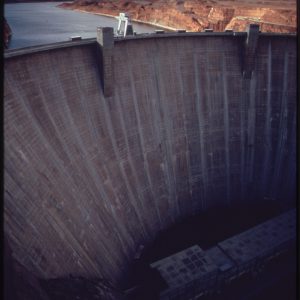Let’s get this straight… rainwater collection will not get you arrested. Illegally impounding a tributary and damming millions of gallons of water that by law belongs to the state… will get you arrested. (Tweet this) There is a huge difference here. In an earlier post, I talked about how the internet and social media can harm water conservation efforts. Well, this story continues that in that vane.
The Misleading Headlines
In July, a Oregon man had been arrested for “collecting rainwater” on his property. If you only read the headlines below, you would either be dismissing rainwater collection or phoning your Congress person to rant about big government.
“Rainwater collection case leads to jail sentence, fine” – link
“30 Days in Jail for Rainwater Collection” – link
“Man Sentenced to 30 Days for Catching Rain Water on Own Property Enters Jail” – link
“Oregon Man Gets 30 Days In Jail For Collecting Rainwater” – link
“In Oregon, they send you to jail for collecting rainwater” – link
“Oregon Man Gets 30 Days in Jail for Collecting Rainwater” – link
And on and on…
I tried to stick with the headlines from top-level news organizations. Since many people consider this a personal liberty issue, this story has passed around the “personal liberty” blogosphere like a hot potato where it produced many more “enticing” headlines I could have shown but you catch my drift.
The Story
Gary Harrington of Eagle Point, Oregon, was arrested for impounding water behind dams into three massive reservoirs or ponds on his 170-acre property. It is reported that two of the dams are 10 feet tall while the other is 20 feet tall. The State of Oregon has declared that the three reservoirs are illegal since they dam tributaries that flow into the Big Butte River.
The State of Oregon convicted Mr. Harrington under a 1925 law that declared all water as public or “state” water. This is due to the prior appropriations law that creates priority water rights. This means the first person to obtain a water right on a stream is the last to be shut off in times of low stream flows. This prevents landowners from damming up the streams and rivers that cross their properties if there are downstream users such as cities and other water providers that have older water rights.
In 2007, Mr. Harrington entered a guilty plea for illegally damming water from the tributaries crossing his property. He received three years probation and was ordered to release the impounded water. This recent lawsuit filed by the State stems from his refusal to meet the conditions of his probation.
Mr. Harrington has been fined more than $1,500 for nine misdemeanor convictions, ordered to serve a 30 day jail sentence, and required to breach his dams and drain his ponds.
In situations like this, I believe understanding the actual Oregon water laws and the difference between “prior appropriation” and “riparian” water laws is very helpful.
So What’s Wrong Here?
Before we go any further, I want you to know that it is legal to collect rainwater in Oregon from impervious surfaces like your roof into rain barrels or cisterns. Ok then…
This type of headline sensationalism leads people to one of two thoughts… that rainwater collection is indeed illegal and will get you arrested OR that the government is sticking their noses in places where they don’t belong.
With the way search engines work these days and with our short attention spans (hello, are you still reading this blog post?), these current stories will be at the top of the search results and therefore people could get the wrong impression about rainwater collection. People will see “rainwater collection” and “jail sentence” in the same headline, not read the story, and then recollect the headline when conversing with friends about similar topics, and spout off wrong information.
There are many other names that could be used for the act that Mr. Harrington was doing. Call it stormwater harvesting, “filling a pond”, etc, but applying the name “rainwater collection” to it will cloud people’s understanding of this subject. Rainwater collection in the tradition sense really means “the collection if rainwater from an impervious surface such as a roof”. I mean, it is all semantics but since rainwater collection still has a long way to go to be accepted and understood by the public, I would hope the journalists and writers could help us out a bit.
One news story stated that Mr. Harrington had 13 million gallons of water stored in his “rainwater collection system” which again was actually three ponds. Just so everyone knows the difference, my “rainwater collection system” on my 1,000 sf house in Austin will only collect about 19,000 gallons annually… that sure is a far cry from 13,000,000 gallons.
I know this is a matter of semantics for some people, but for people who work in the rainwater collection system industry in the US, we need all the help we can get in spreading the good gospel of rainwater harvesting.
Another great blog post by @WaterWired about the semantics of this subject is here.
Your Opinion
What do you think about the use of the term “rainwater collection” for what Mr. Harrington was doing? What do you think about the legal facts of the case? I wanted to just point out the misuse of the words “rainwater collection” to this situation but I completely understand that there is a big political underpinning to this case.




